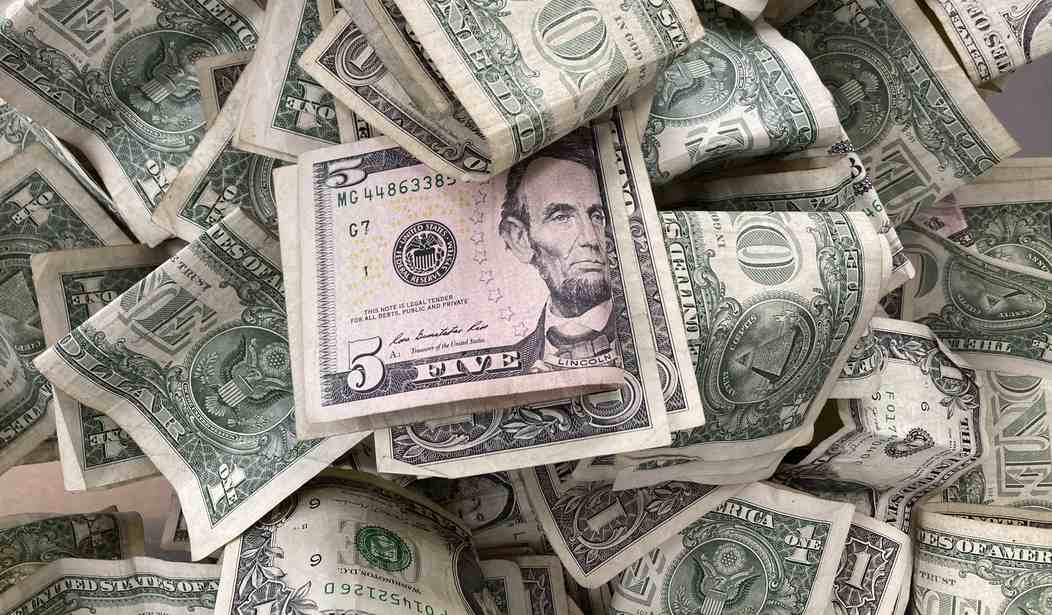With some pundits advocating for price controls to fight inflation, it suddenly feels like the 1970s again. This type of overbearing intervention has never worked as marketed, something President Richard Nixon discovered in 1973 when he lifted the wage and price controls he had implemented two years earlier.
Still, to those unwilling to learn from history, such controls will always seem sensible. Inflation amounts to rising prices, they say, so locking in prices is a supposed easy fix.
But treating inflation this way is like masking a symptom rather than curing the illness. Inflation can no more be controlled by fixing prices than your body weight can be controlled by programming your bathroom scale not to display pounds above some maximum number.
And just like masking your weight will not improve your diet, the misinformation conveyed by price controls will worsen the economy. Most of the time, prices are not simply set by an all-powerful seller; they're a measurement of what consumers and sellers agree a product is worth. They tell entrepreneurs and businesses how to move resources from activities consumers want less of to those consumers value more.
But again, some are unaware of this reality. Political Scientist Todd Tucker, for example, recently wrote in The Washington Post that, "there are normative reasons for not wanting pure markets to exist, because necessary products could be priced out of reach for poor and middle-class consumers." He concludes, "To ensure that the wealthy do not bid up prices for essential items, the time is now to begin destigmatizing greater democratic control over price levels."
Wrong. Unusually high prices mean there isn't enough of something to go around and capping its price all but guarantees shortages. Units are quickly bought up, allocated by corruption or random chance, or moved to more lucrative underground markets. Over time, fewer goods are made because none of these methods inspire legitimate producers to invest in them. Among the many negative consequences of shortages are disproportionate harm to the poor.
Recommended
This is not mere armchair theorizing. Economic literature is full of examples showing how attempts to cool inflation with price controls caused economic calamity. From the ancient Roman Republic to modern-day Venezuela, it brings the same, disastrous results.
And what about, as others are now advising, capping only the prices of goods and services sold by businesses deemed to be monopolists? Again, what sounds so simple is truly unworkable without harmful consequences for the average person.
First, identifying who these monopolies are is difficult. More importantly, when a firm does have some monopoly power in the modern economy, that power is almost always only temporary. High monopoly prices create huge profits which, in all but extreme cases, bring in new competitors who have every motivation to offer lower prices. Price controls can eliminate this incentive, further entrenching "monopolists."
Suggestions like these expose how little some pundits understand about inflation. What we're dealing with is a rise in the general price level caused by the government printing money, borrowing at high levels, sending checks to people (some of whom don't need it) and thus increasing customer demand in an environment where some shortages exist. Fixing the problem means addressing the core causes. It can't be solved by capping a few prices.
Leaving aside the poor economics driving the push for price controls, there is one thing we can be sure of: The idea would benefit central planners, empower the politically savvy and grow the ranks of bureaucrats. Tucker acknowledged that "it is likely many more officials would need to be hired," though not necessarily as many as the staggering 160,000 price regulators employed during World War II. The promise of more public employees may please some readers, but a small army interfering in our economic affairs would make a bad idea even worse.
Inflation is painful. But tackling it with terrible policy just adds insult to injury.
























Join the conversation as a VIP Member